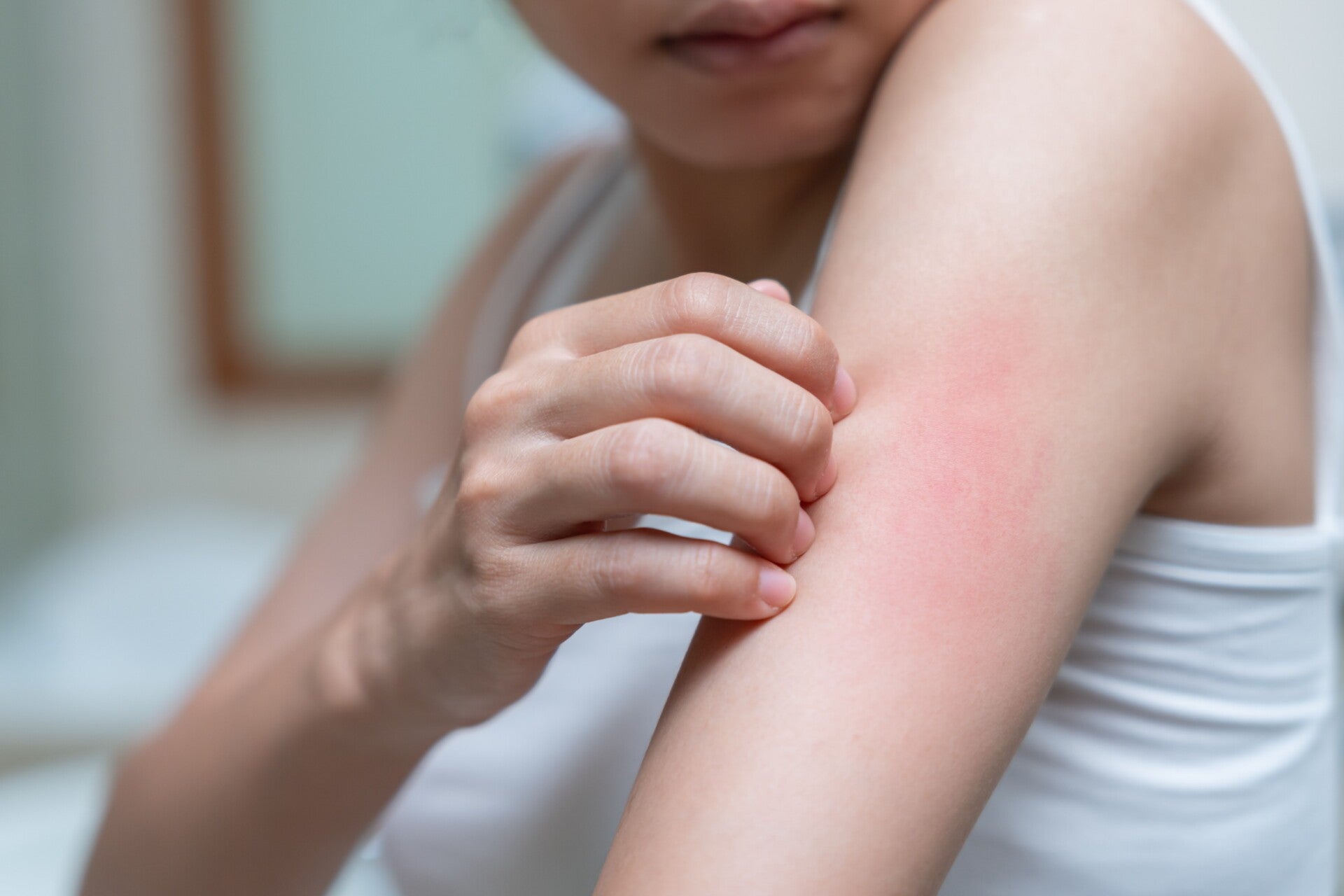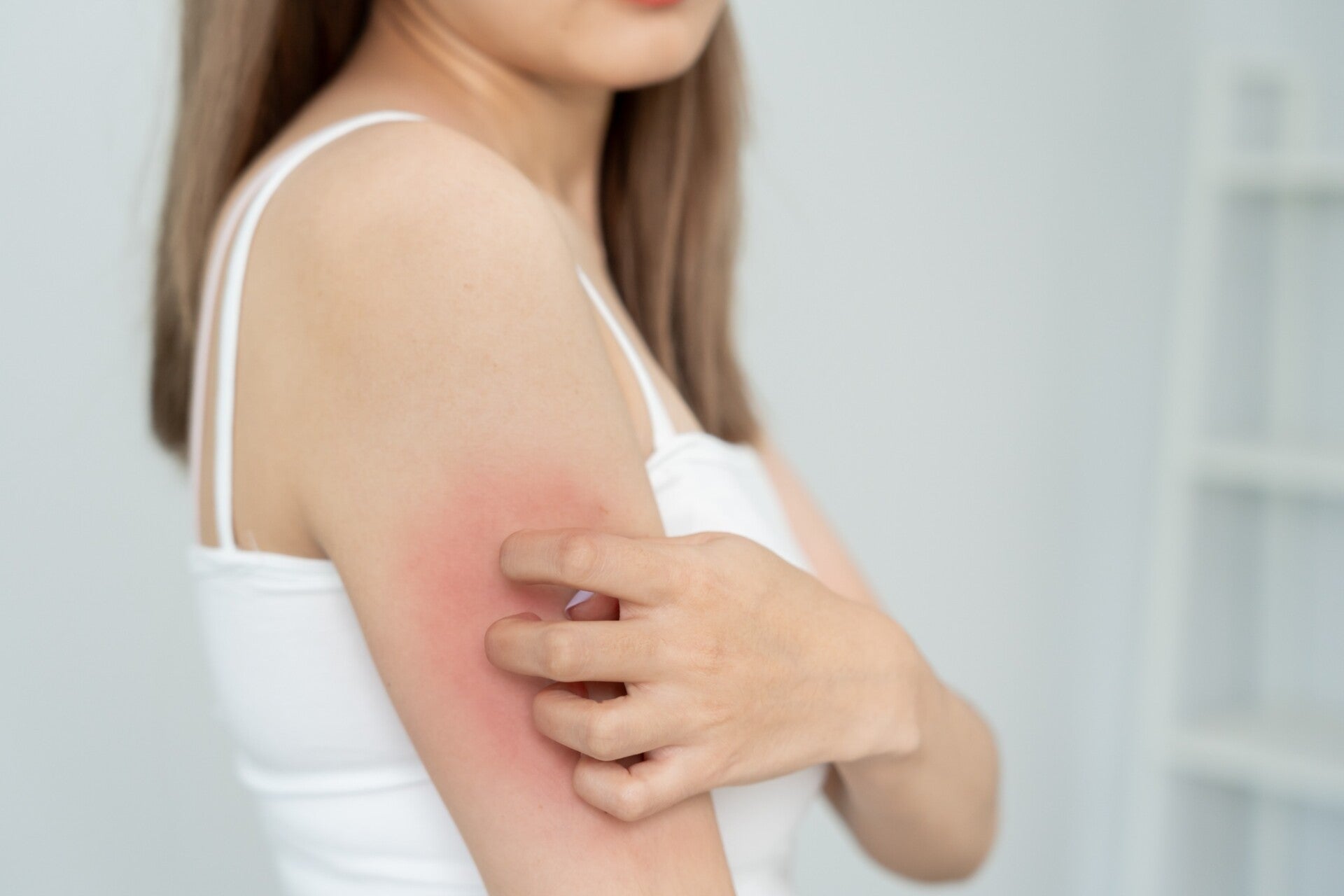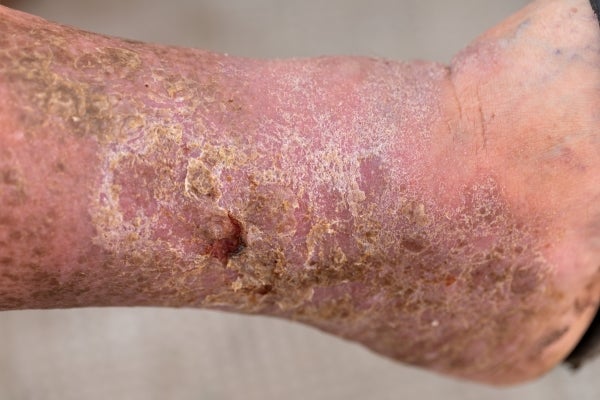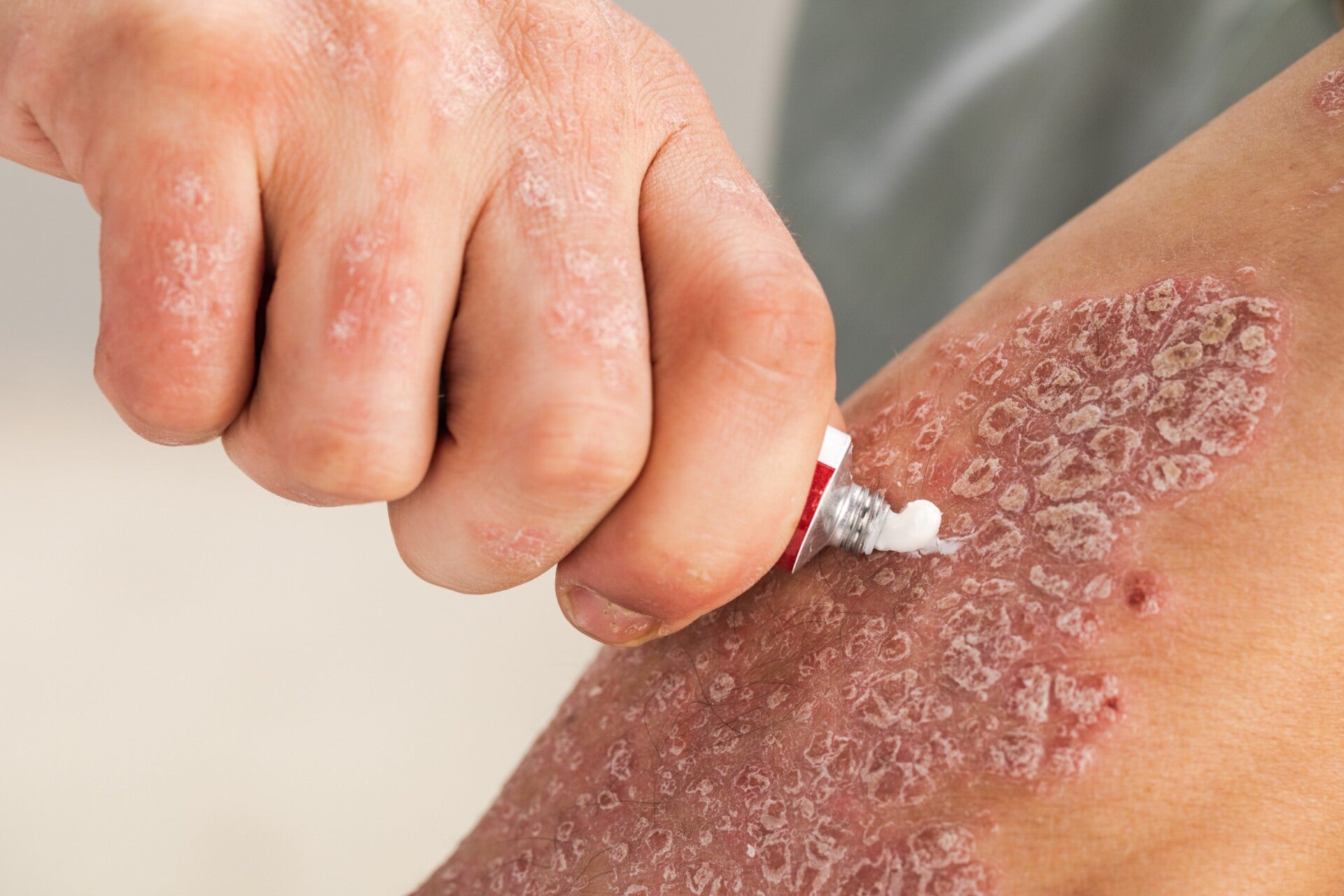What is it like living with atopic dermatitis (AD) or more commonly known as ‘eczema‘? Ask any Malaysians who have AD, and they’d say it’s like a toxic ex-boyfriend who wants to get back together when you’re having your period, or an annoying mosquito that’s constantly helicopter-ing over you while working. But the good news is with the right treatment, anyone can yank the reins from eczema and take back control of their lives – just need to put in a bit of effort lah, but it’s not as bad as you think!
So, in conjunction with World Mental Health Month, let’s get to know how AD can affect one’s mental health, the common misconceptions, and the proper treatments for AD to improve your well-being and mental health:
1. What is atopic dermatitis (AD)?
AD or eczema is a chronic, inflammatory skin disease and is one of the most common (and frustrating) dermatological disorders, which you can tell by recurring inflamed and itchy skin. It’s more common in babies and young children, but some people continue to suffer from AD well into adulthood while others develop AD in their teenage or adult years.
Though AD has different stages that vary based on severity (they may also experience any of these stages in any order), the one constant thing AD has on patients is that it influences their mental health, which can be SUPER annoying when you have to be focused and serious.
Some of the most common mental health conditions that patients with AD may experience include:
- Sleep disruption: Having relentlessly itchy skin throughout the night isn’t exactly the best sleeping environment.
- Depression: The thought of having to live with this itchy life disruptor can be unbearable for patients.
- Anxiety: It’s natural to feel insecure about having hard-to-miss patches of red/discoloured skin, even causing panic disorder or obsessive-compulsive disorder (OCD).
- Post-traumatic stress disorder: Not having enough rest for long periods of time can be mentally overwhelming for some.
- Eating disorders: It’s hard to control/sate your appetite when you’re exhausted AND still have to tolerate AD.
- Psychiatric disorders (e.g. borderline personality disorder, schizophrenia): Patients are naturally more vulnerable to mental health disorders when they lack sleep.
We know it might be hard to believe that a mere skin condition like AD can disrupt someone’s mental health that badly. But just by Googling “AD mental health”, you’ll find countless medical journals and studies proving AD’s power over mental health. After all, who wouldn’t want to live peacefully itch-free and rested?
2. The myths about AD DEBUNKED
Regardless of the severity, if AD isn’t treated right, it can be a huge burden on Malaysian youths and negatively impact their mental health and well-being, affecting various aspects of their lives. Whether it’s disrupting their focus in class or the quality of their work, holding back their social life due to lack of confidence, or sleepiness from itching all night, AD is one of the most underrated obstacles in the daily lives of patients.
That’s why lorh, it’s important to know about the facts of AD and manage it properly, which is why we’re bringing out the big guns – busting the four most common misconceptions about AD for the greater good:
a) AD is contagious
Fact: AD isn’t caused by an infection or illness, which means it’s a non-contagious skin condition that can’t be spread to others. If you’re concerned about transmitting AD to your loved ones, you don’t have to worry about infecting loved ones, so you can reassure them that you’re perfectly safe to kacau.
b) AD will go away on its own
Fact: AD symptoms may come and go, but if left untreated, the flare-ups can get worse over time, causing your skin to become itchier and more inflamed (causing you to scratch) and even lead to open wounds and bacterial infections. So it’s better to treat it promptly to prevent worse skin complications.
c) Poor hygiene causes AD
Fact: Poor hygiene doesn’t cause AD. Instead, it’s a complex skin disorder that’s influenced by various factors like the immune system, environment and genetics; even so, having a good personal hygiene routine can still help in managing AD.
d) AD is caused by stress
Fact: Stress doesn’t cause AD, but it does cause inflammation in general due to the increase in cortisol (stress hormone) – so you’ll only get flare-ups from stress IF you already have AD. As for the causes of AD, no one has found concrete answers yet, though if you have a family history of AD, asthma and hay fever, you’re more likely to have it.
According to a medical study conducted by Malaysian dermatologist Dr. Tan Wen Foong, 12% of the subjects who has AD had anxiety while 7.8% were going through depression. It really proves how much of a hindrance AD can be for our mental health, with a bigger hold on those with more severe AD. Which is why it’s important to stay well-informed on fake news and cold hard facts of AD, and better manage the condition to regain control of your life (Google lah).
3. Treat it well, live well
Even though there’s no cure for AD (yet), we’re blessed with effective treatments of different varieties to reduce the symptoms of AD. Whether it’s topical steroids and creams or newer medications like biologics or JAK inhibitors, you’ll have plenty of options to explore and find a treatment routine that works:
- Corticosteroids: Anti-inflammatory medications that reduce itching and promote skin healing by mimicking natural substances that regulate immune function – used as a topical treatment for over 60 years.
- Biologic therapy: Delivered via injections, this medication targets inflammatory chemicals, reducing itching and flare-ups, and improving skin health; may be paired with topical treatments.
- JAK inhibitors: Janus kinase (JAK) inhibitors block enzymes in the immune system that trigger inflammation and itching.
With medical treatment being an integral part of AD management, taking control over your AD can help to reduce the frequency and severity of flare-ups which can improve quality of life! Especially in these aspects:
- Mental health and peace of mind: Learning to manage your AD well can do wonders for your mental well-being, ‘cos any pharmacological interventions (i.e. AD treatment) can influence the patient’s anxiety and depression.
- Focus and productivity at school/work: Without the constant annoyance of itchiness, exhaustion, pain, and mental discomfort, you can shift your focus on your studies or work.
- Confidence and self-esteem: With no more patchy red/discoloured skin to worry about, those who have treated their AD symptoms would feel more like their confident self in public and can live in the moment without any itchy distractions.
As tempting as it is to just ignore it, you can make your life so much easier (and happier) just by seeking proper treatment for your AD. But be sure to consult with a medical professional before getting any of the medications we listed above.
You don’t have to tolerate AD anymore
At the end of the day, even though you’re living with AD, you don’t have to put up with it for the rest of your life. For more info on AD and how you can manage it better, visit the Uncover Life website, your one-stop resource platform for everything related to skin conditions.
Disclaimer: Health information contained herein is provided for general educational purposes only. Your healthcare professional is the single best source of information regarding your health. Please consult your healthcare professional if you have any questions about your health or treatment.

















































